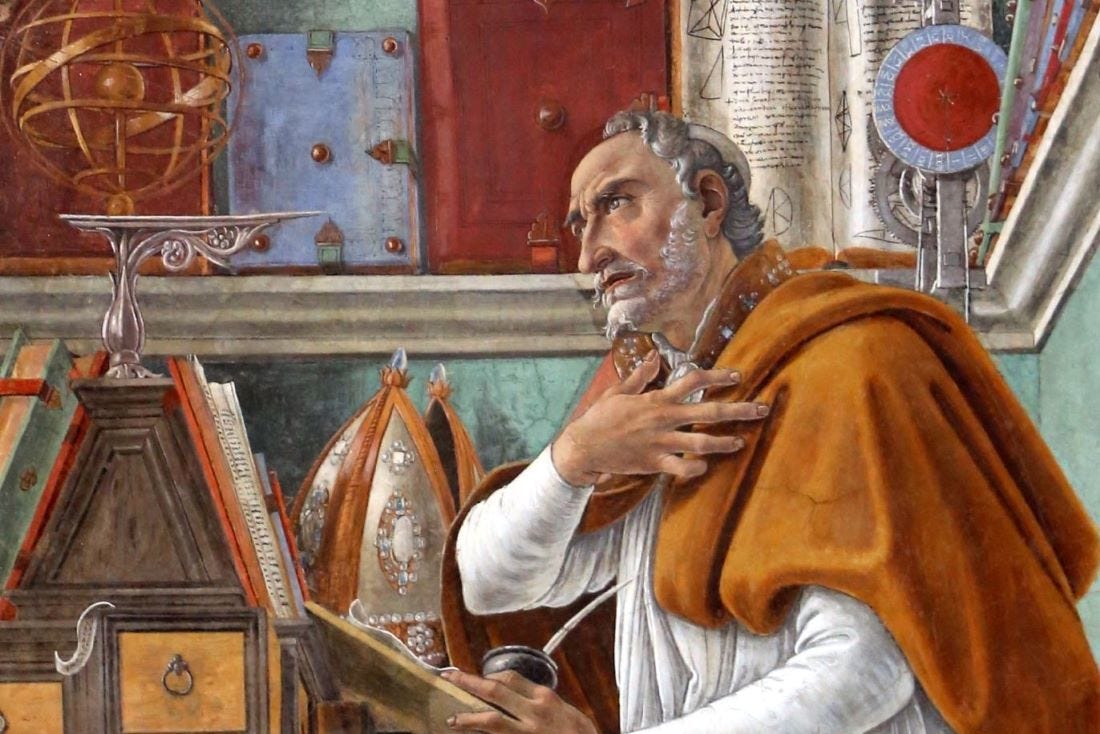Leveraging The Classical Worldview
How Ancient Roman and Greek Literature has been used for Christ.
Truth is universal. What is true for one, is true for another. And believing that the fulness of truth could only be found in Christ, St. Augustine once wrote that if the philosophers “have said aught that is true and in harmony with our faith, we are not only not to shrink from it, but to claim it for our own use from those who have unlawful possession of it.”
Likewise, Clement of Alexandria had argued that philosophy was given to the Greeks by God, for philosophy “acted as a schoolmaster to the Greeks, preparing them for Christ, as the laws of the Jews prepared them for Christ.”
Upon that same conviction, Justin Martyr had stated that “… All of these writers were able to see realities—albeit darkly—because of the sowing of the implanted Word that was in them. For the seed and the imitation that is imparted according to each one’s capacity is one thing; the thing itself is quite another, of which there is participation and imitation according to the grace that comes from God.”
In that light, it is little wonder that the Greeks and the Romans saw parallels between their rustic Arcadia and the Garden of Eden, though they were absent of the fullness of truth. Considering the works of Virgil and Arcadian mythology as a whole, it should be recognized that ancient pagans shared a common ancestral memory with the Hebrews (as does all mankind), only the Gentiles erroneously venerated “the mighty men who were of old, the men of renown” (see Genesis 6:4) while the Hebrews were called to worship only God. Nonetheless, the ancient Gentiles mythological tether to universal truth (albeit on a long leash) would have rendered the Genesis account a useful resource for Christian apologists.
It is by this common grace that Paul could appeal to the Greeks on Mars Hill using their own idols as a teaching opportunity, citing that God had overlooked much of their past ignorance, looking ahead to when the truth of Christ would be revealed to them, which would hold them to account (see Acts 17:16-34).
By the words of these saints, Classical mythology could and should be readily leveraged for spreading the good news of Christ, that Jesus is the Good Shepherd of that idyllic pasture setting, who leads us not backward to the garden but forward to a future garden-city.
John Duns Scotus was an Irish Catholic theologian and poet of the early monastic period, and is regarded as a first rate Neoplatonist philosopher. By none other than Bertrand Russell, Scotus was called “the most astonishing person of the ninth century.”
Scotus had penned a strong piece of polemic on the classics, particularly “Arcadian” or pastoral poetry, as having such elements of truth but recognizing that they were ultimately deceived. With poetic device, Scotus challenges us to grow from the classics, and to recognize the superior metanarrative that is strung throughout the Holy Bible, for only there can the fullness of truth be found.
Homer once sang of his Hellenes and Trojans and Vergil composed verse about the descendants of Romulus; Let us sing about the kindly deeds of the king of Heaven whom the world never ceases joyously to praise.
Homer and Vergil took pleasure in speaking about the flames that brought sudden destruction to Troy and about the struggles of their heroes, but our delight is to sing of Christ drenched in blood after vanquishing the prince of this world.
They were both learned in how to compose falsehoods with an appearance of truth and how to deceive an Arcadian verse; we prefer to sing hymns of fine praise to the power of the Father and His true wisdom.
Let us therefore hold the supreme victories of Christ as brilliant stars in our minds.
Behold the four corners of the world are clasped by the wooden cross.
Much more recently — within our own contemporary recollection — it was the entrenched belief of both J.R.R. Tolkien and C.S. Lewis that the literary worlds of mythology could and should be leveraged for spreading the good news of Christ. On this topic, Lewis argued that God had expressed himself through the minds of ancient poets, “using such images as He found there.” The victory of Christ, he posited, “is simply a true myth,” brought about by God in a way only He could deliver. For God is the author and finisher of our faith (see Hebrews 12:2).
It is in that literary tradition which I have written my own mythology, which commences in my first book Frog of Arcadia (available through link below). It is my hope that the morals of my stories will inspire young people (and those young at heart) to see the beauty and the common grace extended to the world. That we may strive to meditate on whatsoever things that are true, honest, just, pure, and lovely. If there be any virtue in the world, and if there be anything praiseworthy, it is my intention to build stories upon such foundations (see Philippians 4:8).
You can also check out some of my own pastoral poetry by clicking here.








Wonderful stuff! Mythology is a servant of Christian apologetics–––love it!